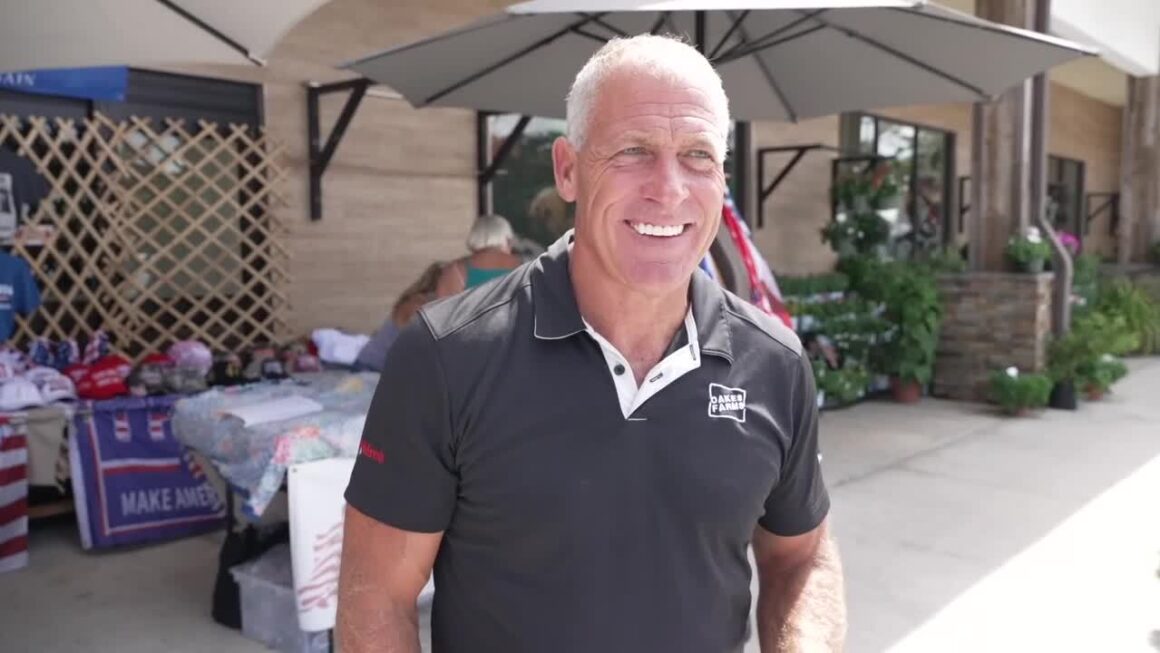In a world where regulations and restrictions around food production and consumption continue to tighten, Alfie Oakes has become one of the most outspoken advocates for “food freedom” in America. His passionate commitment to the idea that individuals and small farmers should have the right to produce, sell, and consume food without excessive government interference has earned him both admiration and criticism. Yet, Oakes’ fight for food freedom is grounded in the belief that the future of American agriculture depends on empowering local farmers and ensuring that consumers can access fresh, healthy food without unnecessary barriers.
Oakes’ journey into the fight for food freedom began with his deep commitment to sustainable farming and organic agriculture. Over the years, as his farm, Oakes Farms, grew in size and success, he became increasingly frustrated by the complex web of regulations that govern food production, distribution, and sales in the United States. These regulations, according to Oakes, often benefit large corporations at the expense of small-scale farmers and limit consumer choice. Determined to make a change, Oakes has become a vocal advocate for reforming the current food system, one that he believes is in desperate need of a more equitable and locally-driven approach.
The Origins of the Food Freedom Movement
The concept of food freedom is relatively simple: it asserts that individuals have the right to make their own choices about what food they produce, purchase, and consume. In Oakes’ view, this extends beyond just the right to grow food on private land; it includes the ability for farmers to sell their products directly to consumers without being bogged down by burdensome regulations or bureaucratic red tape.
In recent years, many small farmers and food producers have found themselves under increasing pressure from government agencies such as the Food and Drug Administration (FDA) and the Department of Agriculture (USDA). While these agencies aim to protect public health and ensure the safety of the food supply, many farmers argue that the rules often hinder their ability to produce food in ways that are environmentally sustainable, economically viable, and beneficial to local communities.
For Oakes, the regulatory burden imposed on small farmers is a major problem. He argues that these regulations—while well-intentioned—often favor large, industrial farming operations and corporate food producers, making it difficult for smaller farms to thrive. This, in turn, limits consumer access to high-quality, locally grown food, while promoting a centralized food system that benefits big agribusinesses at the expense of local farmers.
The Fight Against Excessive Regulation
Alfie Oakes’ commitment to food freedom has often put him at odds with both government officials and larger farming interests. He has consistently advocated for the right of farmers to bypass excessive regulations in favor of direct sales to consumers, particularly in markets like Florida, where his farm operates. For example, he has lobbied for laws that would allow farmers to sell raw milk, unpasteurized cheese, and other minimally processed foods directly to consumers, without interference from health regulators.
At the heart of Oakes’ argument is the belief that consumers should have the freedom to choose what they eat, even if it means purchasing products that do not meet every regulatory standard. He believes that consumers, as well as small-scale farmers, should be able to make decisions based on trust, education, and personal responsibility. Oakes also argues that farmers who practice transparency and operate with integrity should not be treated as criminals simply for providing high-quality, fresh, and natural food.
This mindset is also evident in his approach to selling produce. Oakes is a strong proponent of farmers’ markets, farm-to-table initiatives, and local food co-ops, all of which enable consumers to connect directly with the people who grow their food. For Oakes, these types of community-based food systems are critical to restoring local economies, improving food quality, and reducing the environmental impact of mass food production.
Resisting Big Ag and Corporate Interests
Another key component of Oakes’ fight for food freedom is his resistance to the influence of large agricultural corporations, commonly referred to as “Big Ag.” In Oakes’ view, the rise of corporate farming and factory food production has led to a number of harmful practices, including the overuse of pesticides, harmful treatment of animals, and unsustainable farming practices that harm the environment. He believes that the dominance of Big Ag in the food industry has not only degraded the quality of food available to consumers but has also undermined the livelihoods of small, family-owned farms.
Oakes’ vocal opposition to Big Ag has led him to be a strong advocate for policies that prioritize small-scale, sustainable farming. He believes that a decentralized, locally focused food system is far more resilient and sustainable than the industrial model that relies on centralized processing and mass production. For Oakes, food freedom isn’t just about individual rights; it’s also about creating a food system that values local producers, reduces dependence on industrial agriculture, and minimizes the negative environmental impact of large-scale food production.
A Call for Food Sovereignty
At the heart of Oakes’ food freedom philosophy is the idea of food sovereignty—the belief that communities should have control over their own food systems. This means that local farmers and consumers should be able to make decisions about food production, distribution, and consumption, without being subject to the dictates of corporate interests or government regulations that prioritize profit over people.
Oakes argues that the current system is skewed in favor of industrial agriculture, which often leads to lower-quality food and a lack of transparency in food production. By promoting food sovereignty, Oakes hopes to encourage a shift toward more sustainable, community-driven food systems where consumers can trust the source of their food and support local farmers who prioritize quality over quantity.
For Oakes, the fight for food freedom is not just about personal liberties—it’s about fostering a more ethical, sustainable, and transparent food system. He envisions a future where small farmers are free to operate without excessive government interference, where consumers have the power to choose what they eat, and where communities are empowered to build their own local food systems from the ground up.
The Future of Food Freedom
Alfie Oakes’ fight for food freedom is far from over. As the local food movement continues to grow, Oakes is dedicated to ensuring that farmers have the tools and support they need to thrive. His work has sparked a broader conversation about the role of government in regulating food and the importance of empowering local farmers and consumers to take control of their own food systems.
While Oakes’ advocacy may be controversial to some, his passion for food freedom and sustainable farming is undeniable. As he continues to challenge the status quo and fight for a more decentralized and fair food system, Alfie Oakes is reminding us all that food should be a personal choice, not something dictated by big corporations or excessive regulations.
In the end, Oakes’ message is clear: when it comes to food, freedom is essential—not only for farmers but for consumers as well. By pushing for greater transparency, sustainability, and community control over food systems, Oakes is helping to shape a future where food freedom becomes a reality for everyone.



